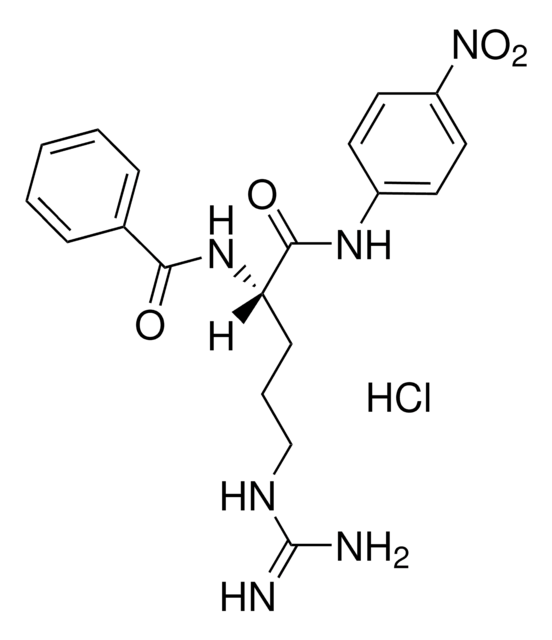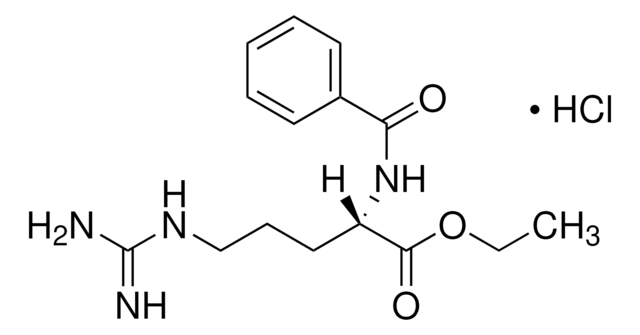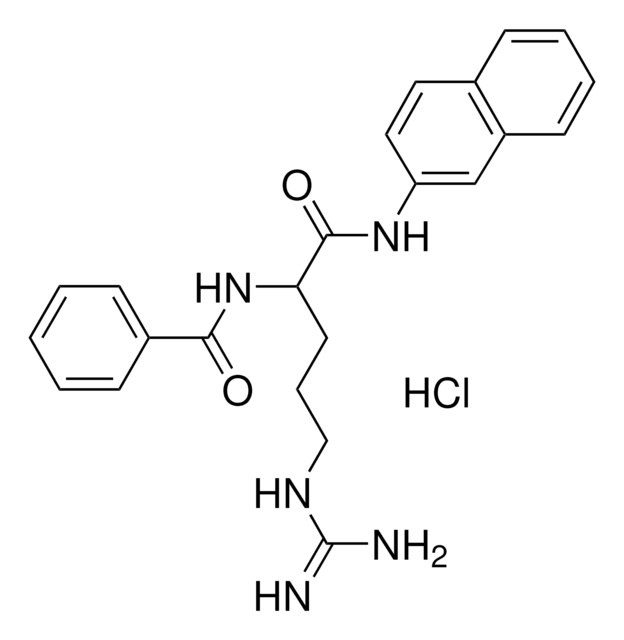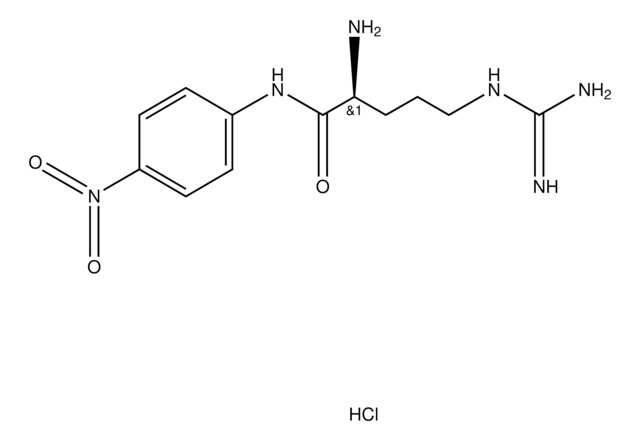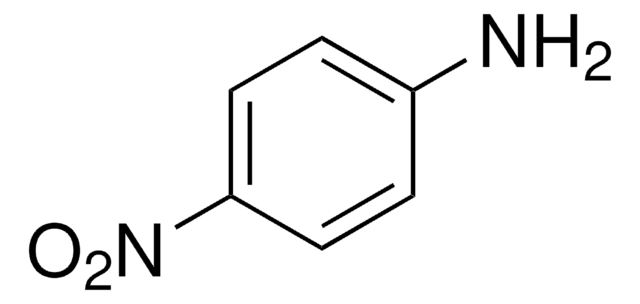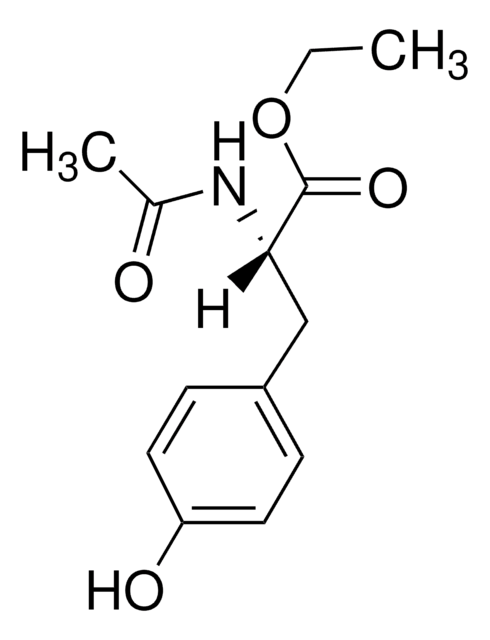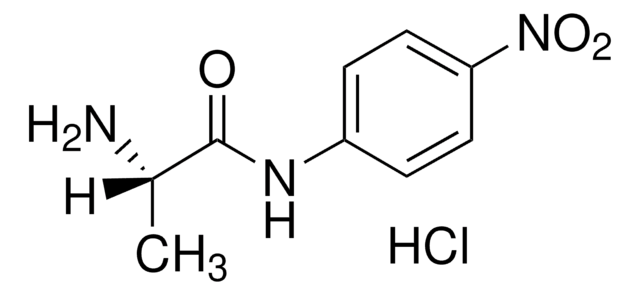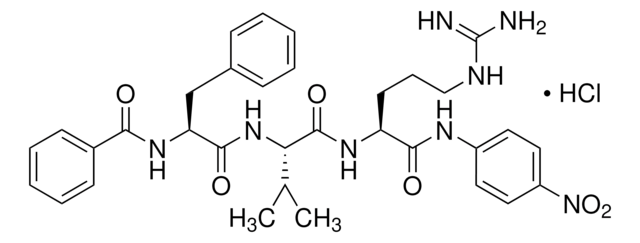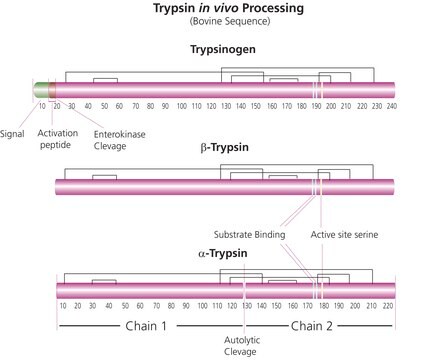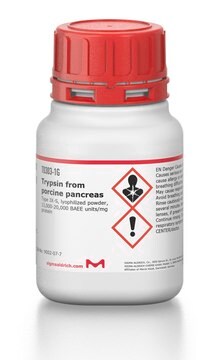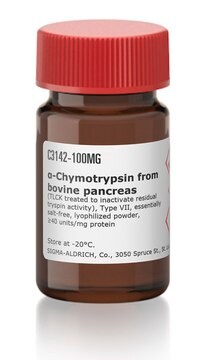B3279
Nα-Benzoyl-L-arginine 4-nitroanilide hydrochloride
proteolytic enzyme substrate, chromogenic, >98% (TLC), powder
Synonym(s):
L-BAPA, L-BAPNA, BANI
About This Item
Recommended Products
Product Name
Nα-Benzoyl-L-arginine 4-nitroanilide hydrochloride, >98% (TLC)
Quality Level
Assay
>98% (TLC)
form
powder
solubility
acetone: water (1:1): 40.00-51.00 mg/mL, clear, colorless to yellow
storage temp.
−20°C
SMILES string
Cl[H].NC(=N)NCCC[C@H](NC(=O)c1ccccc1)C(=O)Nc2ccc(cc2)[N+]([O-])=O
InChI
1S/C19H22N6O4.ClH/c20-19(21)22-12-4-7-16(24-17(26)13-5-2-1-3-6-13)18(27)23-14-8-10-15(11-9-14)25(28)29;/h1-3,5-6,8-11,16H,4,7,12H2,(H,23,27)(H,24,26)(H4,20,21,22);1H/t16-;/m0./s1
InChI key
DEOKFPFLXFNAON-NTISSMGPSA-N
Looking for similar products? Visit Product Comparison Guide
General description
Application
- to measure papain activity in spectrophotometric amidase assay
- to measure the inhibitory function of human cystatin C (HCC) on the protease activity of papain by colorimetric assay
- for trypsin
Substrates
Storage Class Code
11 - Combustible Solids
WGK
WGK 3
Flash Point(F)
Not applicable
Flash Point(C)
Not applicable
Personal Protective Equipment
Choose from one of the most recent versions:
Already Own This Product?
Find documentation for the products that you have recently purchased in the Document Library.
Customers Also Viewed
Our team of scientists has experience in all areas of research including Life Science, Material Science, Chemical Synthesis, Chromatography, Analytical and many others.
Contact Technical Service
